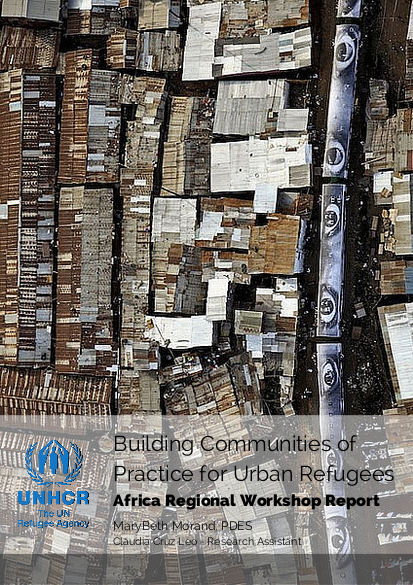
This paper is the second in a series of five reports on workshops designed to broadcast and replicate good practices for urban refugee programmes. The workshops are a product of the Building Communities of Practice for Urban Refugees project funded by the U.S. Department of State’s Bureau for Population, Refugees, and Migration (BPRM). There will be a workshop in each of the five geographic regions. In addition to the workshops there will be a roundtable event in a particular city in each region.
The overall findings from the workshop’s good practice presentations centre on three principles: conducting frequent assessments, proactive partnerships that enable refugees to mainstream into national systems, and expanding upon the financial and social capital that exists within refugee communities. Presenters on the majority of the panels described how the assessments they conducted, often in partnership with other organizations, informed their programming. Panellists spoke frankly about how they were surprised by the information they acquired from these assessments and cases where they adapted their programming to incorporate the new information. Assessments that mapped host community services and the actual access to these services by refugees were promoted. The frequency and rigor of assessment methods were also emphasized by the panellists as well as the importance of triangulating assessment data with other datasets, e.g. data from NGOs, other UN organizations, and government statistics.
Resource collections
- UN Habitat - Urban Response Collection
- Urban Response - Urban Crisis Preparedness and Risk Reduction
- Urban Response Collection - Community Engagement and Social Cohesion
- Urban Response Collection - Economic Recovery
- Urban Response Collection - Environment and Climate Change
- Urban Response Collection - Housing, Land and Property
- Urban Response Collection - Urban Crisis Response, Recovery and Reconstruction
- Urban Response Collection - Urban Resilience